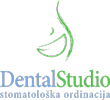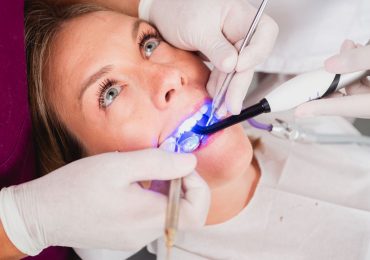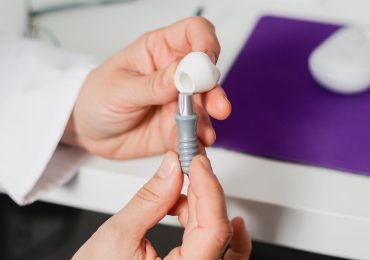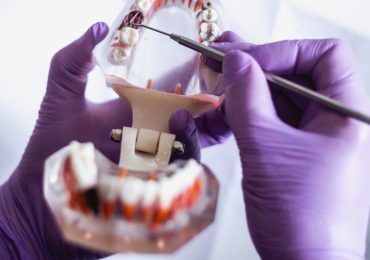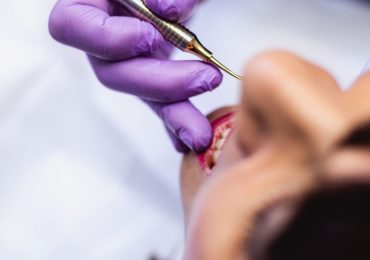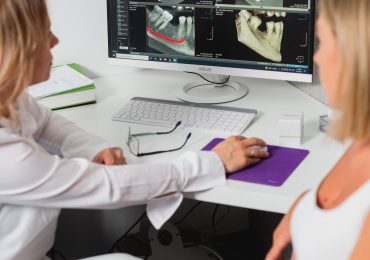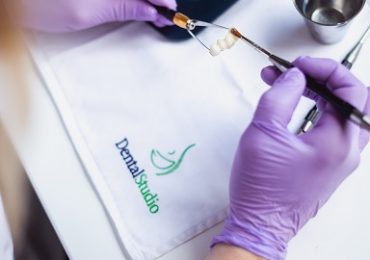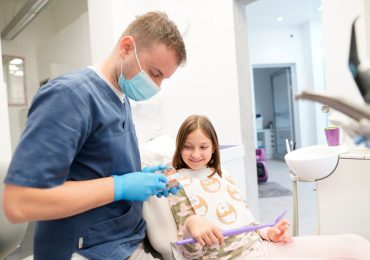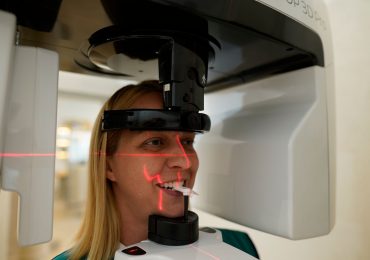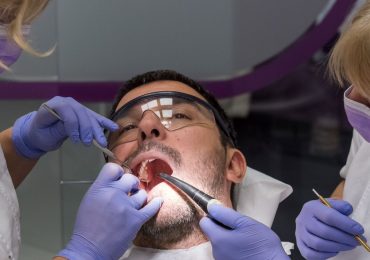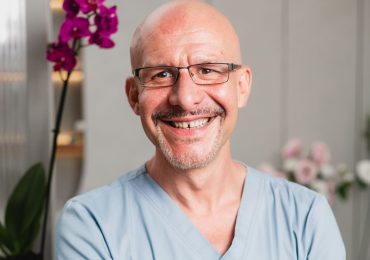Laws and general regulations
Here you can find key provisions and sections of key provisions from the positive legislation of the Republic of Serbia and acts of professional associations relying on good professional practice, setting rules and obligations of patients and defining rights and obligations of health care service providers in private practice.
- Constitution of the Republic of Serbia
(‘Official Gazette RS’ No. 98/2006)
Health Care
Article 68
Everyone shall have the right to protection of their mental and physical health.
Health care for children, pregnant women, mothers on maternity leave, single parents with children under seven years of age and elderly persons shall be provided from public revenues unless it is provided in some other manner in compliance with the Law.
Health insurance, health care and establishing of health care funds shall be regulated by the law.
The Republic of Serbia shall assist development of health and physical culture.
- Law on Health Care
(‘Official Gazette RS’, No. 25/2019)
Health Service
Article 6
The health service in the Republic of Serbia is made up of the health care facilities, high education institutions executing accredited study programs for gaining specific knowledge and skills for performing jobs in the area of health care (hereinafter referred to as: high education institutions of medicine) and other legal entities, for which a separate law defines execution of health care activities, private practice, medical workers and medical associates, as well as organisation and financing of health care.
Social Care for Health on the Republic Level
Article 10
Social care for health on the Republic level, in the sense of Article 9 of this Law, includes:
1) Establishing of the priorities, planning, adoption of special programs for implementation of health care, as well as passing of regulations in this area;
2) Implementation of measures of taxation, economic, educational and cultural policies stimulating the development of healthy lifestyle habits;
3) Providing of the conditions for acquiring knowledge and habits bout healthy lifestyle;
4) Providing of the conditions for development of an integrated health care information system in the Republic of Serbia;
5) Development of scientific R&D activity in the field of health care;
6) Providing of the conditions for professional advancement of medical workers and medical associates.
——————————————————————
Social Care for Health on Individual Level
Article 15
An individual shall look after his/her own health, the health of other people, as well as the living and working environment. An individual shall, within the limits of his/her knowledge and abilities join in the social care for health, as well as administer first aid to an injured or diseased person in an emergency case and enable him/her access to the emergency medical service.
An individual shall be subjected to compulsory vaccination in international circulation against certain communicable diseases specified by the law governing the area of protection of the population from communicable diseases, as well as bear the expenses of vaccination incurred in the procedure of implementation of that measure.
An individual shall respond to the call for a targeted prevention examination, namely screening, in accordance with corresponding national programs.
Informing the Public
Article 16
A citizen has the right to information that are needed for preservation of health and acquiring of healthy lifestyle habits, information on causes, emergences, spreading, method of prevention and elimination of diseases and injuries of a wider public health relevance, as well as to information on factors of the living and working environment, which may have consequences for health, in compliance with this Law.
A citizen has the right to be informed about the protection of their respective health in case of break out of epidemics, major disasters and accidents (threat from ionizing radiation, poisoning, etc.), and other crisis and emergency situations.
The competent health care facility, other legal entity and private practice shall timely and truthfully submit the data about break out of epidemics and other crisis and emergency situations referred to in Paragraph 2 of this Article to the competent authorities of a local self-government, autonomous province, and the Republic of Serbia, which shall inform the public thereon without delay, in compliance with this Law.
Principle of human rights and values and rights of the child in health care
Article 20
The principle of human rights and values in health care refers to respecting the highest possible standard of human rights and values in providing health care, primarily the right to life, physical and mental integrity and inviolability of human dignity, gender equality, respect of moral, cultural, religious, and philosophical affiliations of citizens, as well as the ban of cloning human beings.
The principle of respecting the rights of the child refers to management of the best interest of a child in all activities of a health care provider, provision of health care services and procedures adjusted to children, and the right of a child to proper growth and protection of all forms of violence, abuse, neglect and exploitation.
Every pregnant woman, postpartum woman, child up to turning 18 years of age, single parent with children up to 7 and elderly shall have the right to the highest possible standard of health and health care.
The Principle of Equity of Health Care
Article 21
The principle of equity of health care shall be realized by the ban on discrimination while providing health care on the grounds of race, sex, gender, sexual orientation and gender identity, age, national affiliation, social origin, religious beliefs, political or other affiliations, income scale, culture, language, health status, kind of disease, mental or bodily disability, as well as other personal feature that may be a cause of discrimination.
Measures introduced for achieving full equity, protection and progress of an individual and/or a group of individuals in an unequal position shall not be deemed discriminatory.
The Principle of Comprehensiveness of Health Care
Article 22
The principle of comprehensiveness of health care shall be realized by inclusion of all citizens in the health care system, with the implementation of uniform measures and procedures of health care, which include health promotion, prevention of diseases, early diagnostics, treatment, health care and rehabilitation.
The Principle of Accessibility to Health Care
Article 23
The principle of accessibility to health care shall be realized by providing of adequate health care to the citizens, which is physically, communicatively, geographically, and economically accessible, and/or culturally acceptable, and particularly to persons with disability.
The Principle of Continuity of Health Care
Article 24
The principle of continuity of health care shall be realized by the overall organization of the health care system, which must be functionally interconnected and harmonized by levels, from the primary through the secondary to the tertiary level of health care and which shall provide continuous health care to the citizens at any age of life.
The Principle of Continuous Improvement of the Quality of Health Care
Article 25
The principle of continuous enhancing of the quality and safety in providing health care shall be realized by the measures and activities by which, in line with the modern achievements of the medical science and practice, the possibilities of favourable outcome are increased and the risks and other unwanted consequences for the health and the state of health of individuals and the community as a whole are reduced.
The Principle of Efficiency of Health Care
Article 26
The principle of efficiency of health care shall be realized by achieving the best possible results with respect to the available financial resources, and/or by achieving the highest level of health care at the lowest expenditure of funds.
HEALTH SERVICE
Article 27
Health care providers are:
- Health care institutions in public and private ownership;
- High education institutions in the field of health profession and other legal entities for which a special law stipulates that they perform health care activities (hereinafter: other legal entities);
- Private practice;
- Health care employees who perform health activities, in compliance with this Law;
- Other high education institutions and scientific-educational and scientific institutions, in accordance with the opinion of the Ministry of Health, in compliance with this Law.
Article 28
Health care facilities may be founded with the funds in state ownership or private ownership, unless otherwise regulated by this Law.
State owned health care facilities are founded by the Republic of Serbia, autonomous province or local self-government, and privately owned health care facilities are founded by legal entities or private persons, under the provisions of this Law.
А health care facility may be founded as:
1) Outpatient department;
2) Health care institution polyclinic;
3) Pharmacy;
4) Hospital (general and specialty);
5) Medical centre;
6) Institute;
7) Public health institute;
8) Clinic;
10) Clinical and hospital centre;
11) University clinical centre;
12) Military medical institution or medical unit and institution of the Serbian Armed Forces, in compliance with a separate law.
Legislation regulating legal position of legal entities applies to bodies of a private health care facility, status changes, change of legal form and termination of work.
A health care facility can be also founded in compliance with the legislation regulating public-private partnership, unless otherwise defined by this Law.
Article 31
Private practice may engage in health care activities if it meets the requirements laid down by this Law and acts adopted for the implementation of this Law, if it has:
1) Certain profile and number of health care practitioners and/or health care associates of adequate high and/or secondary education, who passed intern’s exit exam and have a relevant approval for engaging in independent work, issued by a competent chamber (hereinafter: the licence), and for engaging in certain types of practice the relevant specialization or scientific and/or academic title, with a full-employment status;
2) Adequate diagnostic, therapeutic, and other equipment for safe and modern providing of health care for the activity for which it has been set up; 3) Adequate premises for admitting and accommodating patients, performing diagnostic, therapeutic and rehabilitation procedures, health care, and storage of medicines and medical devices;
4) Adequate kinds and quantities of medicines and medical devices that are required for engaging in the health care activity for which it has been set up.
Two or more health care facilities may organize joint medical services for laboratory, x-ray and other diagnostics, as well as joint non-medical services for legal, economic and financial, technical and other affairs.
Detailed requirements with respect to the staff, equipment, premises, medicines and medical devices for setting up and engaging in a health care activity, as well as type and method of providing health care services by health care facilities shall be specified by the minister.
A health care facility using the sources of ionizing radiation must, apart from the requirements referred to in paragraphs 1 and 3 of this Article, also meet other requirements laid down by the law regulating protection from ionizing radiation.
Types, Requirements for Setting up, and Termination of Work of Private Practice
Article 37
Private practice may be set up by:
1) An unemployed health care practitioner;
2) A health care practitioner beneficiary of old age pension.
The health care practitioner referred to in Paragraph 1 of this Article may set up private practice under the condition that he/she:
1) Is generally physically fit;
2) Has graduated from a university, or relevant medical school, specialization and/or subspecialisation
3) Passed intern’s exit exam
4) Has been issued, or renewed the license for independent practice, in compliance with the law;
5) Is not sentenced by judgement absolute for a criminal offence to prison for one of more years, or prison for a crime against human health, until the conviction is not erased in compliance with the law, is not sentenced by judgement absolute to a security measure in accordance with the Criminal Law in the form of: mandatory psychiatric treatment in a health care facility as an inside-patient, mandatory psychiatric treatment in a health care facility as an outside-patient, mandatory treatment of a drug-addict, mandatory treatment of an alcoholic, or ban of engaging in profession, activities and duties preventing him/her from engaging in a health care activity, and/or by a decision of the competent body of the chamber, he/she has not been handed down one of the disciplinary actions banning independent practice, in compliance with the law regulating the work of the associations of health care practitioners, during the validity of a security measure and/or ban;
6) Meets other requirements laid down by the law.
The regulations governing the area of private entrepreneurship shall apply to the work of private practice, unless otherwise regulated by this Law.
Article 38
A private practice may be set up as:
- Outpatient unit (general, specialty and subspecialty);
- Dental medicine office (general and specialty);
- Polyclinic;
- Laboratory (for biochemistry with haematology and immunochemistry, microbiology with virology, pathohystology with cytology);
- Pharmacy
- Outpatient unit (for health care and for rehabilitation);
- Dental laboratory.
Private practice referred to in Paragraph 1, Items 1)-5) of this Article may be set up by a health care practitioner having adequate integrated academic health care studies, in compliance with this Law.
Private practice referred to in Paragraph 1, Items 6) and 7) of this Article may be set up by a health care practitioner having adequate high and/or secondary medical education, in compliance with this Law.
Health care activity in private practice from Paragraph 1, Items 6) and 7) of this Article, may be performed solely based on a report of a relevant medical doctor and/or dental medicine doctor, including instructions on therapy administration and/or production of a prosthetic aid or orthodontic device.
Polyclinic may be founded for a minimum of two different areas of medicine and/or dental medicine.
The founder of private practice referred to in paragraph 1 of this Article shall independently engage in an activity as an entrepreneur.
A health care practitioner may set up only one form of private practice referred to in Paragraph 1 of this Article.
Private practice may not engage in a health care activity in the area of emergency medical care, supply of blood and blood derivative products, taking, keeping and transplantation of organs, cells and tissues, as well as parts of human body, production of serums and vaccines, pathoanatomical – autopsy activity, or a health care activity in the area of public health.
Article 39
Private practice may engage in the health care activity if it meets the requirements laid down by this Law, if it has:
- Certain profile and number of health care practitioners and/or health care associates of adequate high and/or secondary education, with a license issued by a relevant chamber, and for engaging in certain types of practice the relevant specialization and/or subspecialisation, with a full-employment status;
- Adequate diagnostic, therapeutic, and other equipment for safe and modern providing of health care for the activity for which it has been set up;
- Adequate premises for providing of the health care activity for which it has been set up;
- Adequate kinds and quantities of medicines and medical devices required for engaging in the health care activity for which it has been set up.
A polyclinic, in addition to the founder engaged as an entrepreneur, shall have health care practitioners of adequate education, with a license issued by a relevant chamber, with a full-employment status, for each area of medicine and/or dental medicine within the polyclinic.
Detailed requirements with respect to the staff, equipment, premises, medicines and medical devices for setting up and engaging in the health care activity of private practice shall be specified by the minister.
Private practice using the sources of ionizing radiation must, apart from the requirements referred to in Paragraphs 1-3 of this Article, also meet other requirements laid down by the law regulating the protection from ionizing radiation.
Article 40
Private practice may engage in the health care activity that is specified by the decision of the Ministry concerning fulfilment of the requirements for engaging in the health care activity.
Exceptionally, specialty, subspecialty health care facility and polyclinic may engage a health care practitioner of other specialty from another health care facility and/or private practice if direct collaboration and consultation with the health care practitioner of that private practice are required to provide a specific patient with high-quality and safe health care within the health care activity which the private practice is set up for, by concluding an agreement on business and technical collaboration with another health care facility and/or private practice, in compliance with the law regulating labour and the law regulating work of employees in public services and/or by concluding an agreement on additional work with a health care practitioner, as well as in the other way defined by the law regulating labour and the law regulating work of employees in public services.
Exceptionally, a dental medicine office may engage a dental medicine doctor, specialist, from another health care facility and/or private practice if the presence of a specific dental medicine specialist is required to, through direct collaboration and consultation with the health care practitioner of that dental medicine office, provide a specific patient with high-quality and safe health care within the legally defined conditions in regard to diagnostic, therapeutic and other equipment, adequate premises, as well as adequate types and volumes of medicines and medical devices required to engaging in the health care activity which the dental medicine office is set up for, by concluding an agreement on business and technical collaboration with another health care facility and/or private practice, in compliance with the law regulating labour and the law regulating work of employees in public services and/or by concluding an agreement on additional work with a health care practitioner, as well as in the other way defined by the law regulating labour and the law regulating work of employees in public services.
Private practice may engage a health care practitioner with a license for performing methods and procedures of complementary medicine for diagnostics, treatment and rehabilitation of a patient within the health care activity which the private practice is set up for, by concluding an agreement on business and technical collaboration with another health care facility and/or private practice, in compliance with the law regulating labour and the law regulating work of employees in public services and/or by concluding an agreement on additional work with a health care practitioner, as well as in the other way defined by the law regulating labour and the law regulating work of employees in public services.
A health care practitioner from other speciality is banned from engaging in a health care activity outside the health care activity defined by a decision of the Ministry concerning fulfilment of the requirements for engaging in the health care activity of that private practice, except in cases defined in Paragraphs 3-5 of this Article.
The decision referred to in Paragraph 1 of this Article, except for a private practice pharmacy, shall be handed down by the health inspector.
Against the decision referred to in Paragraph 1 of this Article a complaint may be filed to the minister.
On the basis of the decision concerning fulfilment of the requirements for engaging in the health care activity, private practice shall register in the register with the Business Registers Agency (APR), in compliance with the law.
The health care activity defined by the decision of the Ministry of Health shall be registered with the Business Registers Agency.
Private practice shall start working on the date of registration in the register referred to in Paragraph 9 of this Article.
Article 41
Private practice may temporarily terminate engagement in the health care activity for a maximum period of five years, except a private practice pharmacy, which may temporarily terminate engagement in the health care activity for a maximum period of 30 days.
In case of temporary termination of engagement in the health care activity shorter than 30 days, the private practice founder shall put up a notice about temporary termination of engagement in the health care activity at the place where the health care activity is performed.
——————————————————————————————
Article 42
Private practice shall:
1) Provide emergency medical care, in compliance with the law;
2) Participate at the invitation of the competent authority in the work on prevention and control of communicable diseases, as well as on protection and rescue of the population in case of crisis and emergency situations;
3) Put up the work schedule and adhere to that schedule;
4) Put up the pricelist of health services and issue the bill for the provided health services;
5) Organize, and/or provide medical waste management, in compliance with the law and regulations on waste management.
Article 44
The Ministry shall hand down the decision on temporary ban on practicing the health care activity in private practice, if:
1) Private practice does not fulfil the statutory requirements with respect to the staff, equipment, premises, medicines and medical devices;
2) It engages in practicing of a health care activity contrary to the decision of the Ministry on fulfilment of the requirements for engaging in the health care activity;
3) In the procedure of quality assessment of professional work a measure of ban is handed down;
4) The private practice founder fails to renew the license or if the license is revoked, in compliance with this Law;
5) By the decision of the competent body of the chamber one of the disciplinary actions concerning the ban on practicing the health care activity is brought against the founder of private practice;
6) Puts up the business name, or marks private practice contrary to the decision of the Ministry concerning fulfilment of the requirements for engaging in the health care activity;
7) Advertises practicing of professional medical procedures and methods of health care, and/or other health services contrary to the decision of the Ministry from Article 40, Paragraph 2 of this Law, and/or contrary to the provisions of this Law or the law regulating advertising;
8) Practices the activity contrary to the law.
The health inspector shall, upon establishing the facts referred to in Paragraph 1 of this Article, hand down the decision on the temporary ban on work of private practice, except in a pharmacy private practice, until the reasons for issuing the ban are eliminated, in compliance with the law.
Against the decision referred to in Paragraph 2 of this Article a complaint may be filed the minister.
Private practice may, after a positive inspection control and based on the decision of the health inspector regarding the legality of actions, resume engaging in the health care activity if it, within the time period laid down by the law, or specified by the decision of the health minister from Paragraph 2 of this Article, eliminates the reasons that gave rise to temporary ban on engaging in the health care activity in private practice.
Marking and advertising
Article 53
A health care facility and private practice shall put up the name, or the business name with the data on the activity that is specified by the decision of the Ministry concerning fulfilment of the requirements for engaging in the health care activity, working hours and the seat of a health care facility or private practice, in compliance with the law.
————————–
It is allowed to advertise health care services, professional medical procedures and methods of health care performed in a health care facility or private practice in accordance with the decision of the Ministry concerning fulfilment of the requirements for engaging in the health care activity, methods and procedures of complementary medicine in compliance with a license issued by the Ministry for applying a specific method and procedure of complementary medicine, as well as contact information of a health care facility or private practice, in the aim of informing a patient, in accordance with the law.
It is prohibited to advertise health care services, professional medical procedures and methods of health care, including methods and procedures of the complementary medicine, which are non-compliant with Paragraph 3 of this Article. Prohibition also refers to advertising which is false, misleading, advertising facilitating health-threatening behaviour, misusing trust and lack of knowledge or experience in the area of health, medicines and medical devices, establishing a relation of dependence and facilitates credulity, or is not in accordance with the law regulating advertising.
Misleading advertising of health care services, professional medical procedures and methods of health care is advertising that in any manner misleads or is likely to mislead the general and expert public.
Results in the implementation of professional medical methods and health care procedures may be announced exclusively at professional and scientific events ad published in professional and scientific journals and publications.
————————-
It is prohibited to reward or use other market approaches to encourage a patient to purchase medicines and medical devices, which may cause their excessive, unnecessary or irrational use.
Keeping Medical Documentation and Records
Article 54
A health care facility and private practice shall keep prescribed medical documentation and records and in the specified timeframes submit individual and summary reports to the competent institute of public health, as well as to other competent bodies, institutions and organizations, in the manner laid down by the law regulating medical documentation and records in the area of health care.
Confidentiality shall be guaranteed concerning the data from the medical documentation of patients that is processed and submitted for individual and summary reports referred to in Paragraph 1 of this Article, in accordance with the law regulating the rights of patients and the law regulating medical documentation and records in the area of health care.
A health care facility and private practice shall safeguard the medical documentation of patients from unauthorized access, copying, and abuse, irrespective of the form in which the data from the medical documentation are kept, in compliance with the law regulating the rights of patients and the law regulating medical documentation and records in the area of health care.
Keeping medical documentation and recording and handling data in the medical documentation shall be exclusively performed by authorized persons, in compliance with the law.
The types and contents of the medical documentation and records, the manner and the procedure for their keeping and recording, the persons authorized to keep medical documentation and record data, the timeframes for submitting and processing of data, the manner of disposing of the data from the medical documentation of patients that is used for data processing, as well as other issues of importance for keeping medical documentation and records, shall be governed by the law regulating medical documentation and records in the area of health care.
HEALTH CARE PRACTITIONERS AND MEDICAL ASSOCIATES
Article 150
A health care practitioner, depending on the professional qualifications, shall be:
1) A doctor of medicine, doctor of dental medicine, a graduate pharmacist and a graduate pharmacist medical biochemist – graduate of the relevant medical faculty;
2) Medical nurse, health care technician, or other individual – graduate of the relevant faculty or secondary medical school, in accordance with the law.
In order to engage in the health care activity, health care practitioners must, for certain types of practice, also have relevant specialization, or subspecialisation, in accordance with the provisions of this Law and regulations adopted for the implementation of this Law.
Article 152
Membership in the chamber shall be mandatory for the health care practitioners referred to in Article 150 of this Law, who are engaged in a health care activity as their profession.
A separate law shall govern setting up, activities, organization and the work of the chamber, as well as other issues of importance for the work of an chamber.
Article 153
A health care practitioner can provide a health care activity in a health care facility or private practice if he/she has:
- Served internship and passed intern’s exit exam;
- Been issued, or renewed the license.
A health care activity, in the sense of this Law, shall imply the independent provision of health care without direct supervision by another health care practitioner.
A foreign citizen who is engaged in a health care activity in the Republic of Serbia, must, apart from the requirements laid down in Paragraph 1 of this Article, speak the Serbian language at least with the competence required for seamless communication with a patient, as well as any other language in official use, in accordance with the regulations governing the area of official use of language in the Republic of Serbia, and must fulfil other requirements in accordance with the regulations governing employment of foreign citizens in the Republic of Serbia.
Article 154
A health care practitioner who is a foreign citizen can directly perform a health care activity at a health care facility or private practice provided that he/she obtained a temporary license in the Republic of Serbia in compliance with this Law.
Such temporary license set out in Paragraph 1 of this Article can be issued to a health care practitioner who is a foreign citizen if, in addition to the requirements specified by the law regulating the area of entry, movement and abode of foreign citizens in the Republic of Serbia, meets the following requirements:
- That he/she received a written invitation from the health care facility, or private practice for intermittent engagement to perform certain a health care activity;
- That he/she has license, or other relevant document issued by the competent authority of the country of residence or abode;
- That he/she implements health care technologies used in the Republic of Serbia, or that he/she implements health care technologies not used in the Republic of Serbia but for which, as new health care technologies, the implementation permit was issued pursuant to this Law, or implements the treatment methods and procedures, as well as that he/she uses medicines and medical devices in compliance with the regulations related to health care.
The temporary license set out in Paragraph 1 of this Article is issued by the competent medical chamber.
The temporary license set out in Paragraph 1 of this Article can be issued by the competent chamber for the period not longer than 180 days during a calendar year.
The competent chamber shall issue a decision within not longer than ten working days from the submission of application for temporary license.
The method and procedure for temporary license issuing are subject to the provisions of this Law, or the law regulating the operation of medical chambers, unless otherwise specified by this Law.
Engagement of health care professionals who are foreign citizens by a health care facility or private practice contrary to this Law is prohibited.
Article 155
Health care practitioners shall engage in a health care activity in accordance with the professional standards, adopted positive practice guides, treatment protocols and the code of professional ethics.
For their work, health care practitioners shall assume professional, ethical, penal, material and disciplinary responsibility, in accordance with the law.
Health care practitioners with university qualifications referred to in Article 150, Item 1) of this Law shall, when receiving the university diploma, sign a statement – oath that they will in practicing their profession adhere to the principles established in Hippocratic oath, as well as to the principles of professional ethics.
Article 156
A health care practitioner may refuse to provide health care if the health service that should be provided is not in agreement with his/her conscience, beliefs or the international rules of medical ethics (hereinafter: conscientious objection).
A health care practitioner shall make an official record in written form, kept in the medical documentation of a patient, and inform the immediate superior, director of health care facility, or founder of private practice about his/her conscientious objection.
A health care facility or private practice shall respect the expressed conscientious objection of the health care practitioner, as well as ensure providing of health care to the patient by another health care practitioner.
A health care practitioner may not refuse to provide emergency medical care by expressing the conscientious objection.
Continual Education and other forms of professional advancement
Article 178
Continual education shall imply:
1) Participation in professional and scientific gatherings;
2) Participation in seminars, training courses, and other continual education programs.
Continual education can be provided under the conditions specified by this Law medical faculties, secondary medical schools, medical chambers, health care facilities, private practice, medical associations, the Medicines and Medical Devices Agency of Serbia, Agency for Licensing Health Care Facilities in Serbia and in other public agencies, bodies and organizations supervised by the Ministry (hereinafter: continual education organizers).
Other forms of professional advancement from Article 170, Paragraph 1, Item 1) of this Law refer to postgraduate studies, as well as publication, review and editing of articles in professional and scientific journals, books or publications.
————————————————-
Issuing, Renewing, and Withdrawing the License
Article 181
Issuing, renewal, and withdrawal of the license of health care practitioners is the procedure conducted by the competent chamber for the purpose of establishing professional qualifications of health care practitioners for engaging in a health care activity.
——————————————————————————.
The license is a public document.
The license is issued on the A3 420 x 297 mm form.
The license form shall include the emblem of the Republic of Serbia, name and logo of the competent chamber.
The following information on a health care professional is included in the license:
1) Name and surname;
2) Educational degree;
3) Are of health care for which the license is issued;
4) License number;
5) Date and place of issuing the license;
6) License expiration date;
7) Seal of the competent chamber and signature of the director of the competent chamber.
———————————————————
License Renewal
Article 183
After the expiration of the license from Article 182, Items 4) and 5) of this Law, each subsequent license is issued upon the license renewal procedure, prescribed by this Law and regulations adopted for its implementation.
———————————————————-
License shall be renewed every seven years.
A health care practitioner older than 70 shall renew the license every year.
License Withdrawal
Article 185
Acting in official capacity, the chamber shall temporarily withdraw the license from a health care practitioner if the practitioner:
- Is engaged in an activity for which he/she has not been issued the license;
- Makes a professional mistake while performing his/her practice conduct due to which the state of patient’s health is compromised or aggravated;
- Was temporarily banned from engaging in a health care activity by the competent body of the chamber, due to a major breach of professional duty and prejudice to reputation of a member of the chamber, in compliance with the law and the articles of association of the chamber;
- Has been sentenced by judgment absolute for the criminal offence to prison for six months or more, or a prison sentence for a crime against human health;
- Is sentenced by judgement absolute to a security measure in accordance with the Criminal Law in the form of: mandatory psychiatric treatment in a health care facility as an inside-patient, mandatory psychiatric treatment in a health care facility as an outside-patient, mandatory treatment of a drug-addict, mandatory treatment of an alcoholic or ban of engaging in profession, activities and duties preventing him/her from engaging in a health care activity;
- When engaging in a health care activity misappropriates the funds of the health insurance;
- Is deleted from the list of members of the competent chamber;
- In other cases laid down by the law.
Temporary withdrawal of the license for the reasons specified in paragraph 1, Items 1)-3), 6) and 8) of this Article may last from six months to five years from the date of receipt of the decision on temporary withdrawal of the license.
Temporary withdrawal of the license for the reasons specified in Paragraph 1, Item 4) of this Article may last until the deletion of the conviction, in accordance with the Criminal Law.
Temporary withdrawal of the license for the reasons specified in Paragraph 1, Item 5) of this Article may last until the expiration of a security measure issued against a health care practitioner.
Temporary withdrawal of the license for the reasons specified in Paragraph 1, Item 7) of this Article may last until the re-registration of a health care practitioner to the list of members of the chamber, under the conditions prescribed by this Law and such license is valid for the remaining period of validity of the previously issued license.
Article 186
Malpractice, in the sense of this Law, implies unconscientious engagement in a health care activity in the form of negligence of professional duties in providing health care, carelessness or oversight, or noncompliance with the established rules of the profession and professional skills in the provision of health care, leading to injury, damage, aggravation of the health or loss of parts of the body of a patient.
The malpractice referred to in Paragraph 1 of this Article shall be established in the disciplinary proceeding before the competent body of the chamber, in the process of regular and unscheduled quality assurance of the professional, or in other procedures prescribed by the law.
QUALITY OF HEALTH CARE, QUALITY ASSURANCE OF PROFESSIONAL PRACTICE AND ACCREDITATION
Quality of Health Care
Article 187
Quality of health care, in the sense of this Law, implies the measures and activities by which, in line with the modern achievements of medical, dental medical, and pharmaceutical sciences and practices and the principles of ethics increase the chances for a favourable outcome and reduce the risk of undesired consequences for the health and the state of health of an individual and the community as a whole.
The quality of health care shall be assessed in the process of the quality assurance of professional work, based on the indicators of health care quality, and in the procedure of accreditation.
Quality Assurance of Professional Practice
Article 188
The quality assurance of professional practice, in the sense of this Law, implies the procedure of the quality assurance of professional practice of the health care facilities, other legal entity, or private practice, health care practitioners, and medical associates.
The quality assurance of professional practice shall be carried out as:
1) Internal quality assurance of professional practice;
2) External quality assurance of professional practice.
Article 190
Health care practitioners and medical associates shall report to the head practitioner of the organizational unit for the quality of their professional practice.
The head practitioner of the organizational unit referred to in Paragraph 1 of this Article shall report to the director of the health care facility, or to the manager of other legal entity for the quality of his/her work, as well as for the quality of professional practice of the organizational unit or the service he/she manages.
The expert manager of the organizational unit of the health care facility submits a quarterly report on the executed regular internal quality assurance of professional practice to the expert council.
A health care practitioner in private practice shall report to the founder of that private practice for the quality of his/her professional work.
Article 191
External quality assurance of professional practice can be regular and unscheduled.
Regular external quality assurance of professional practice shall be organized and implemented by the Ministry, on the basis of the annual plan of regular external quality assurance of professional practice, which shall be adopted by the Minister upon a proposal of the public health institute founded for the territory of the Republic of Serbia and the competent medical chamber.
The public health institute founded for the territory of the Republic of Serbia and the competent medical chamber shall submit a draft proposal the annual plan of regular external quality assurance of professional practice referred to Paragraph 1 of this Article to the minister on December 31 of the current year for the following year at the latest.
Unscheduled external quality assurance of professional practice shall be undertaken by the Ministry at the request of a citizen, a company, facility, health insurance organization, and a Government authority.
———————————————————
A health care facility, other legal entity, or private practice, as well as a health care practitioner, or medical associate shall cooperate with the professional supervisors and submit to them all the required data and other documentation required for conducting a regular or unscheduled external quality assurance of professional practice.
Article 195
Indicators of the quality of health care, conditions, method, organization of the implementation of internal and external quality assurance audits of professional practice, the actions that may be undertaken for eliminating the identified deficiencies and other relevant issues for conducting a quality assurance audit of professional practice of health care facilities, other legal entities and private practices, health care practitioners, and medical associates, are laid down by the Minister, and the competent medical chamber submits a proposal of provisions related to regular external quality assurance audit of professional practice.
Accreditation
Article 196
Accreditation, in the sense of this Law, is the procedure of assessing the quality of work of a health care facility or private practice, on the basis of the implementation of the optimal level of established standards of work in a specific area of health care, or branch of medicine, dental medicine or pharmaceutical health care activity.
Article 197
The accreditation referred to in Article 196 of this Law shall be administered by the Agency for Accreditation of Health Care Facilities of Serbia (hereinafter: the Agency), as the organization administering professional, regulatory, and developmental affairs, which will be founded by the Government, in compliance with the law regulating public agencies.
———————————————————–
CONFLICT OF INTEREST
Article 234
A donation is prohibited if it is directed towards a body performing control, inspection control, decides on rights, obligations and interest of a donor or in any manner enters a business or other relationship with those entities.
A donation is allowed if the possibility of inappropriate influence is eliminated or if there is no assumption or possibility for such influence.
The director of a public health care facility shall decide on accepting and managing donations.
HEALTH CARE OF FOREIGNERS
Article 237
Health care of foreigners shall be provided in the way in which health care is provided to the citizens of the Republic of Serbia.
Article 238
A health care facility and private practice, as well as health care practitioners, shall provide emergency medical care to a foreigner.
Foreigners shall personally bear the expenses for the provided emergency medical care, as well as for other types of health care services provided to them at their request, unless otherwise specified by this Law or by international agreements.
For the use of health care services referred to in Paragraph 2 of this Article, a foreigner shall pay a fee according to the pricelist of the health care facility or according to the pricelist of private practice.
SUPERVISION OVER THE WORK OF A HEALTH CARE FACILITY, OTHER LEGAL ENTITY AND PRIVATE PRACTICE
Article 241
Supervision and inspection supervision over the work of a health care facility, other legal entity and private practice, in the sense of this Law, shall be exercised as supervision over the implementation of this Law, regulations adopted for the implementation of this Law, and other regulations governing engagement in a health care activity and rights of patients, or as inspection control.
The supervision over the work of a health care facility, other legal entity and private practice referred to in Paragraph 1 of this Article shall be conducted by the Ministry through the health inspector, except supervision of the work of a pharmacy, private practice pharmacy, outpatient department pharmacy, pharmacy as an organizational unit of another health care facility at the primary level of health care, hospital pharmacy and supervision over pharmaceutical activity in another legal entity, which will be conducted via the pharmaceutical inspector, in accordance with the law.
————————————————————-
- The Law on Patients’ Rights
(Official Gazette RS’, Nos. 45/2013 and 25/2019 – as amended)
I BASIC PROVISIONS
Article 1
This Law regulates the rights of patients when using health care, method of exercising and method of protection of those rights, as well as other issues related to patients’ rights and duties.
Meaning of terms in this Law
Article 2
The basic terms used in this Law have the following meaning:
1) A patient is an individual or insured individual in the sense of the Law on Health Insurance, ill or healthy, who requests or who is provided a health care service aimed at preservation and improvement of health, prevention, elimination and early detection of diseases, injuries and other health disorders and timely and efficient treatment and rehabilitation;
2) A medical measure is a health care service provided for prevention, diagnostics, therapy and rehabilitation purposes;
3) A child is an individual younger than 18;
4) Mental capacity of a child older than 15, in the sense of this Law, means a child’s capacity to understand the nature of their health status, purpose of a proposed medical measure, risks and consequences of not applying the measure, as well as the capacity to evaluate received information in a decision-making process;
5) Nuclear family members include: a spouse or out-of-wedlock partner, children, siblings, parents, foster parent, foster child and other individuals sharing a family household with a patient.
The terms used in this Law in the masculine grammar gender include masculine and feminine natural gender of the individuals they refer to.
Article 3
A patient shall be guaranteed to have the equal right to high-quality and continuous health care in accordance with his/her health status, generally accepted professional standards and ethical standards, in the best interest of a patient and with respect to his/her personal attitudes.
Exercising of the right from Paragraph 1 of this Article is based on a partner relation between a patient as a recipient of health care services and a health care practitioner and/or health care associate as a provider of health care service.
A partner relation from Paragraph 2 of this Article includes mutual trust and respect between a patient and a health care practitioner and/or health care associate at all levels of health care, as rights and duties of partners in that relation.
Article 4
This Law also applies to foreign citizens for whom health care is provided in the Republic of Serbia, in compliance with the law and validated international agreements.
Article 5
This Law applies to health care facilities, other forms of health care service (hereinafter: private practice), organisational units of faculties of medicine engaged in the health care activity, other legal entities for which a separate law regulates their engagement in specific work within the health care activity and health insurance, as well as health care practitioners and health care associates.
II PATIENTS’ RIGHTS
Right to access to health care
Article 6
A patient has the right to available and high-quality health care, in accordance with his/her health status, within limits of material capacities of the health care system.
In a procedure of exercising health care, a patient has the right to equal access to health care service, without discrimination regarding financial capacities, place of residence, type of disease, time of accessing health care service or some other type of diversity that may cause discrimination.
Right to information
Article 7
A patient has the right to all types of information about his/her health status, health care service and a manner of using it, as well as all available information based on scientific research and technological innovation.
A patient has the right to information about the rights from health insurance and procedures for exercising those rights.
A patient has the right to receive the information from Paragraphs 1 and 2 of this Article in a timely manner and in his/her best interest.
A patient has the right to information about name and surname and professional status of health care practitioners and/or health care associates participating in taking medical measures and a procedure of his/her treatment in general.
Right to preventive measures
Article 8
A patient has the right to appropriate health care services aimed at preservation and improvement of health, prevention, elimination and early detection of diseases, injuries and other health disorders.
A health care facility shall implement preventive measures from Paragraph 1 of this Article by raising awareness of people and providing health care services in appropriate time intervals, for population groups exposed to a higher risk of disease, in accordance with the law.
Right to high-quality health care service
Article 9
A patient has the right to a timely and high-quality health care service, in accordance with his/her health status and validated scientific standards.
This right to high-quality health care service includes an appropriate level of providing health care services and humane relation towards a patient.
Right to safety
Article 10
A patient has the right to safety in receiving health care, in accordance with modern achievements in the medical profession and science, in the aim of attaining the most favourable treatment outcome and minimising a risk of undesired consequences for a patient’s health.
A health care facility shall be responsible for safety in providing health care, as well as for continuous monitoring of risk factors and undertaking measures for their reduction, in accordance with the regulations governing the area of health care quality.
A patient must not suffer damage from inadequate functioning of a health care service.
Right to Notification
Article 11
A patient has the right to receive a timely notification from a competent health care practitioner which he/she requires in order to make a decision about consent or non-consent to a proposed medical measure.
Notification from Paragraph 1 of this Article includes:
1) Diagnosis and prognosis of a disease;
2) Brief description, aim and benefit from a proposed medical measure, duration and potential consequences of applying and not applying the proposed medical measure;
3) Type and probability of potential risks, painful and other temporary or permanent consequences;
4) Alternative methods of treatment;
5) Potential changes of a patient’s condition after applying a proposed medical measure, as well as potential necessary changes in a patient’s lifestyle;
6) Effect of medicines and potential temporary consequences of that effect.
A competent health care practitioner shall provide a patient with a notification from Paragraphs 1 and 2 of this Article even without the patient requesting it.
A notification is provided by a competent health care practitioner in oral form and in a manner understandable for a patient, in accordance with his/her age, education and emotional state. If the competent health care practitioner estimates that the patient, out of any reason, does not understand the provided notification, the notification can be provided to a member of the patient’s nuclear family.
If a patient does not speak the language in official use at the territory of a health care facility, he/she must be provided with an interpreter, and if a patient is deaf, he/she must be provided with a sign language interpreter, in accordance with the law.
A patient can waive the right to notification, except a notification stating that a proposed medical measure is necessary and not without a risk and/or that not undertaking it poses a risk.
Exceptionally, a competent health care provider can decide not to inform a patient on a diagnosis, procedure of a proposed medical measure and its risks, or to reduce a notification therefore, if there is a serious threat that it will significantly aggravate the patient’s health. In that case, a notification must be provided to a member of the patient’s nuclear family.
In a procedure of receiving health care, a child with mental capacity, regardless of age, has the right to confidential consulting without a parent’s consent, when it is in the child’s best interest.
A patient or a legal representative has the right to notification and insight into costs of the patient’s treatment.
A competent health care practitioner enters the data in medical documentation that he/she provided a notification about the information from Paragraphs 1 and 2 of this Article to a patient, member of nuclear family or legal representative.
Right to free choice
Article 12
A patient has the right to free choice of a medical doctor or a dentist, health care facility, as well as to free choice of proposed medical measures, in accordance with the law regulating the area of health care and the law regulating the area of health insurance.
Right to second expert opinion
Article 13
A patient has the right to ask for a second expert opinion about his/her health status from a medical doctor or dentist who has not been directly engaged in providing a health care service.
A patient exercises the right from Paragraph 1 of this Article at his/her personal request.
A health care facility shall post at a visible place and regularly update a list of organisational units and medical doctors or dentists providing health care services in that organisational unit.
Right to privacy and confidentiality
Article 14
A patient has the right to confidentiality of his/her personal information which he/she provided to a competent health care practitioner, including the information referring to his/her health status and potential diagnostics and therapy procedures, as well as the right to protection of his/her privacy during diagnostics testing and treatment as a whole.
A competent health care practitioner and/or a health care associate is prohibited from providing other individuals with the personal information referred to in Paragraph 1 of this Article.
A patient’s examination and undertaking of medical measures in general can be attended only by those health care practitioners and/or health care associates who are directly engaged in the patient’s examination and undertaking of medical measures.
As a rule, a patient’s examination and undertaking of other medical measures can be attended by students of schools and faculties of medicine, for the purpose of practical training, as well as health care practitioners and health care associates during their internship, unless the patient refuses it.
A patient can provide consent for the presence of other individuals during his/her examination and undertaking of medical measures in general.
At a patient’s specific request, an examination performed by a competent medical doctor or dentist cannot be attended by other health care practitioners and/or health care associates.
———————————————————
Right to consent
Article 15
A patient has the right to freely decide on everything that concerns his/her life and health, except in cases when it directly threatens life and health of other individuals.
As a rule, any medical measure must not be undertaken without a patient’s consent.
A medical measure against a patient’s will or a legal representative of a child or of a patient with no business capacity can be undertaken only in exceptional cases, defined by the law and in accordance with medical ethics.
Article 16
A patient can provide consent to a proposed medical measure explicitly (in oral or written form) or non-explicitly (if he/she has no explicit objections).
Written consent of a patient or his/her legal representative is mandatory for undertaking a proposed invasive diagnostics and therapy medical measure.
A patient shall not be obliged by consent which is not preceded by notification referred to in Article 11 of this Law, and, in that case, a competent health care practitioner bears a risk of damaging consequences.
A patient can revoke consent to a proposed medical measure (in oral or written form) before the beginning of its application, as well as during treatment, under the conditions prescribed by this Law.
A patient has the right to appoint a person who will provide consent on his/her behalf or who will be notified about undertaking medical measures, in case the patient becomes incompetent to make a decision on consent.
Article 17
A patient with mental capacity has the right to refuse a proposed medical measure, even in a case when it saves or maintains his/her life.
A competent health care practitioner shall point out to a patient consequences of his/her decision about refusing a proposed medical measure and request a written statement about it from the patient, which will be kept in medical documentation, and if the patient refuses to give a written statement, he/she will make an official record about it.
A health care practitioner shall record the information in medical documentation about consent of a patient or his/her legal representative to a proposed medical measure, as well as about refusal of that measure.
Article 18
An emergency medical measure can be undertaken on a patient who is unconscious or is not able to provide consent from other reasons without his/her consent, and members of his/her nuclear family shall be notified thereof, whenever it is possible.
The medical measure referred to in Paragraph 1 of this Article shall be undertaken in a health care facility based on an examination of a consulting body.
If a legal representative of a child or a patient with no mental capacity is not available or refuses a proposed emergency medical measure, the emergency medical measure can be undertaken, if it is in the best interest of the patient.
If, during a surgical procedure, a need for its extension that could not be anticipated emerges, the surgical procedure extension can be performed only if it is urgently required, based on an assessment of the medical doctor or dentist performing that procedure.
Article 19
If a patient is a child or has no mental capacity, a medical measure can be undertaken, with consent of his/her legal representative, who was previously notified in the sense of Article 11 of this Law.
A competent health care practitioner and/or health care associate shall enable a child or a patient with no business capacity to be involved in making a decision about consent to a proposed medical measure, in accordance with his/her maturity and mental capacity.
A competent health care practitioner who thinks that a legal representative of a patient does not act in the best interest of a child or an individual with no business capacity shall immediately notify a competent guardianship body.
A child older than 15 and with mental capacity can independently provide consent to a proposed medical measure, without previous notification referred to Article 11 of this Article.
If a child older than 15 and with mental capacity refuses a proposed medical measure, a competent health care practitioner shall require consent from his/her legal representative.
Right to medical records
Article 20
A patient has the right to insight into his/her medical documentation.
In case when a patient is a child or an individual with no business capacity, his/her legal representative has the right to insight into medical documentation, except in case referred to in Article 24, Paragraph 1 of this Law.
A child older than 15 and with mental capacity has the right to insight into his/her medical documentation.
Exceptionally, members of a patient’s nuclear family have the right to insight into medical documentation of their family member if such data is of relevance for their treatment.
A competent healthcare practitioner shall regularly keep medical documentation, in accordance with the law, and enter all undertaken medical measures, especially case history, diagnostics, diagnostics measures, therapy and therapy results, as well as advice provided to a patient.
Right to confidentiality of data about patient’s health status
Article 21
Data about health status and/or data from medical documentation represent personal data and particularly sensitive data about a patient personality, in compliance with the law.
The data referred to in Paragraph 1 of this Article shall be kept health care practitioners and/or health care associates, as well as other individuals employed in health care facilities, private practice, organisational unit of medical university engaged in the health care activity, other legal entity engaged in specific work within the health care activity in compliance with the law, organisation of mandatory health insurance, as well as legal entity engaged in work of voluntary health insurance, where a patient has health insurance, to whom such data are necessary and required for exercising competences defined by the law.
Particularly sensitive data about a patient personality also include data on human substances, which can be used to establish identity of a person they originate from.
The persons referred to in Paragraph 2 of this Article, as well as other individuals who manage data from medical documentation in an authorised manner and/or without consent of a patient or his/her legal representative contrary to this Article and make such data public in an authorised manner, shall be deemed responsible for disclosing particularly sensitive data, in compliance with the law.
Article 22
Competent health care practitioners and/or health care associates, as well as other individuals employed with an employer referred to in Article 21, Paragraph 2 of this Law, may be exempt from the duties of keeping data referred to in Article 21, Paragraph 1 of this Law exclusively based on written consent of a patient and/or his/her legal representative, or based on a court decision.
If a patient or his/her legal representative provided consent for disclosing data about his/her health status in a written statement or notice of authorisation validated with a competent body, a competent health care practitioner can reveal data on the patient’s health status.
Exceptionally from Paragraph 2 of this Article, a competent health care practitioner can disclose data about health status of a patient to an adult member of his/her nuclear family, in case when the patient did not provide consent for disclosing data about his/her health status, but their disclosure is necessary to avoid a health risk for that family member.
Article 23
A patient and/or his/her legal representative has the right to a copy of medical documentation and bears necessary costs of producing such copy of medical documentation.
Certificates and/or copies of medical documentation for a deceased member of family can be issued to an adult member of his/her nuclear family or legal representative, at his/her request, for exercising legally defined rights.
Article 24
A child older than 15 with mental capacity has the right to confidentiality of data in his/her medical documentation.
Even if a child requests the information about his/her health status not to be disclosed to his/her legal representative, a competent health care practitioner shall disclose information about his/her health status to his/her legal representative in case of serious threat for the child’s life and health.
Right of patient participating in medical research
Article 25
Medical research including an adult patient with business capacity can be undertaken exclusively with his/her consent.
A patient has to provide consent referred to in Paragraph 1 of this Article in written form, after he/she is sufficiently informed about meaning, aim, procedures, expected outcomes, potential risks, as well as adversary side effects of research.
At a patient’s request, the information referred to in Paragraph 2 of this Article is also provided in written form.
A patient has to be particularly warned that he/she is free to refuse participation in research and revoke his/her consent, at any time, in written form.
Exceptionally, medical research including a child or a patient with no business capacity can be conducted for direct benefit of the patient and with written consent of his/her legal representative, who was previously notified in the sense of Paragraphs 2) and 4) of this Article, unless the patient objects to it.
Exceptionally, research in public health including a child older than 15 with mental capacity which does not provide direct benefit and does not bear a risk for the child can be approved if the research aims to contribute to better understanding of health status of this population, with written consent of the child or his/her legal representative, who were previously notified in the sense of Paragraphs 2) and 4) of this Article.
A competent health care practitioner conducting medical research shall tend to protection of life and health of a patient as a priority against interests of the society and science.
A patient who suffers harm on his/her body or health due to medical research has the right to claim damages in compliance with the law, regardless of liability.
Before the launch of medical research, a health care facility shall insure a patient participating in the medical research in case of harm for the patient’s health caused by the medical research, in compliance with the law. The health care facility shall conclude an agreement with the patient, defining a ratio of necessary costs belonging to the patient participating in the medical research.
A patient has the right to participate in clinical testing of medicines and medical devices, in compliance with the law regulating the area of medicines and medical devices.
Before the launch of medical research, the ethical board of a health care facility shall reach a decision on conducting the medical research including patients in the health care facility.
It is prohibited to conduct medical research in private practice.
————————————————————
Right to suffering and pain relief
Article 28
A patient has the right to the highest level of suffering and pain relief, in accordance with the generally accepted professional standards and ethical principles, including pain therapy and humane palliative care.
The right referred to in Paragraph 1 of this Article does not include euthanasia.
Right to respect patient’s time
Article 29
In case there are no conditions for providing an immediate medical measure, a patient has the right to schedule an examination, diagnostics procedures, as well as other medical measures and procedures as soon as possible.
A health care facility shall perform a specific diagnostic procedure, proposed by a competent body engaged to provide an opinion on further treatment, on a patient without any delay, or within a deadline defined by the competent body.
A health care facility shall respect a patient’s time and inform the patient in a timely manner about any changes of the date and time of a schedule medical service referred to in Paragraph 1 of this Law.
Right to complaint
Article 30
A patient who thinks that he/she was deprived of the right to health care or that he/she was deprived on any right in the area of health care by an act of a health care practitioner or health care associate has the right to file complain to a health care practitioner managing the process of work, director of a health care facility, founder of private practice or consultant for protection of patient’s rights.
Right to compensation for damage
Article 31
A patient who suffers damage on his/her body due to a professional error of a health care practitioner or health care associate, or a professional error causes aggravation of his/her health status, has the right to compensation for the damage, in accordance with the general rules on damage liability.
The right to compensation for damage cannot be excluded or restricted in advance.
PATIENT’S DUTIES
Article 32
In the process of receiving health care, a patient’s duties, in the sense of this Law, refer to responsibility towards personal health, other users of health care services, health care practitioners and/or health care associates, as well as other employees in a health care facility and private practice.
In receiving health care, a patient shall adhere to the general acts of a health care facility, private practice, organisational unit of a medical faculty engaged in the health care activity and other legal entity engaged in specific work within the health care activity, about conditions of stay and conduct in them.
Patient’s responsibility for personal health
Article 33
In receiving health care, a patient shall:
1) Actively participate in care, maintenance and improvement of his/her health;
2) Fully and truly inform a competent health care practitioner and/or health care associate about his/her health status;
3) Follow instructions and undertakes measures prescribed by a competent health care practitioner and/or health care associate.
Patient’s responsibility towards other users of health care services
Article 34
A patient shall respect the rights of other patients, prescribed by this Law, who receive health care in a health care facility, private practice, organisational unit of a medical faculty engaged in the health care activity and other legal entity engaged in the health care activity and other legal entities engaged in the specific work within the health care activity.
Patient’s responsibility towards health care practitioners and/or health care associates
Article 35
A patient shall treat a competent health care practitioner and/or health care associate with respect and appreciation in receiving health care.
It is prohibited to distract competent health care practitioners and/or health care associates when providing health care.
Article 36
If a patient does not adhere to the duties referred to Articles 32 – 35of this Law, a competent health care practitioner and/or health care associate, after a previous warning, can cancel further providing of further health care to the patient, except for emergency medical service, and shall inform thereof in written form director of a health care facility and register in the patient’s medical documentation the reasons for refusing to provide health care.
In case referred to in Paragraph 1 of this Article, a health care facility, private practice, organisational unit of a medical faculty engaged in the health care activity and other legal entities engaged in specific work within the health care activity shall ensure than a patient further receives appropriate health care.
Article 37
A patient shall timely inform a competent health care facility about cancelling scheduled examinations and medical procedures, as well as about a change of address and phone number.
PROTECTION OF PATIENTS’ RIGHTS
Article 38*
Protection of patients’ rights shall be provided by a unit of local self-government by appointing a person performing work of a consultant for the protection of patients’ rights and establishing a Health Council.
- Statute of the Serbian Dental Chamber
(‘Official Gazette RS’, Nos. 89/2007, 85/2008, 37/2014, 19/2015, 107/2015, 13/2017, 43/2017, 7/2018 and 133/2020)
Rights and duties
Article 10
The Chamber members have the rights and duties to:
– Propose, select and be selected to the Chamber,
– Comply with all decisions and regulations introduced by the Chamber bodies and adhere to them,
– Report all changes of relevance for the registration in the membership list and other relevant facts from the Chamber’s competence to a competent Chamber body, within 30 days since the date of being notified about such changes and/or facts,
– regularly pay the membership fee and other fees prescribed by the Chamber,
– Professionally advance,
– Have and timely renew an approval for independent work,
– Use legal and other expert assistance of the Chamber,
– Exercise other rights provided by the Chamber for its members.
In exercising the rights and duties referred to in Paragraph 1 of this Article, the Chamber members shall:
– Constantly monitor development of the profession and other sciences,
– Share acquired knowledge and skills with younger colleagues,
– In performing their profession, apply exclusively verified and scientifically proven methods and procedures in prevention, diagnostics, therapy and rehabilitation of a disease, and introduce and apply new methods and procedures in compliance with the law,
– Keep a professional secret,
– Care about their dignity and personal dignity of citizens they provide health care to,
– Provide emergency medical care to citizens always and everywhere,
– Keep the prescribed medical documentation in compliance with the Law,
– Participate in events organised by the Chamber,
– Act in compliance with the Code of Ethics and other regulations in the area of health care.
The Chamber’s Court of Honour
Article 78
The Chamber’s Court of Honour is founded in order to establish breaches of professional duty and reputation of a Chamber member, establish liability and delivering measures for those breaches.
Procedure in front of the First Degree Court of Honour
Article 85
In case of probable cause that a Chamber member committed a breach of professional duty or reputation of a Chamber member, based on citizens’ complaints or other circumstances, or there is a request of a party, the Chamber director or an individual he/she authorises shall initiate a disciplinary action for delivering a disciplinary measure in front of the competent Court of Honour.
A procedure can be initiated or undertaken upon a written proposal of a party.
A written proposal for initiating a disciplinary action shall include evidence required to confirm a probable cause that a Chamber member breached professional duty or reputation of a Chamber member.
- Code of Dental Ethics
(‘Official Gazette RS’, No. 14 from February 05, 2008)
Article 2
A dentist shall act in a manner to serve as an example of humanity and respect of human dignity.
All members of the Serbian Dental Chamber shall comply with the provisions of this Code, whether they are employed in the state of private sector, as well as dentists on mandatory internship. The Chamber shall initiate a procedure against dentists who do not adhere to this Code, in front of the Ethics Board and the Court of Honour
Dentists who join the Chamber membership shall adhere to the provisions of this Code.
Article 5
A dentist always provides professional assistance to everyone, regardless of race, religion, gender, nationality, political orientation and social status.
The basic duties of a dentists are to:
– Provide emergency medical care,
– Act in accordance with the rules of science and apply modern medical doctrines,
– Constantly advance, adhere to high ethical standards of science and apply them in daily work with patients,
– Protect reputation and dignity of the profession in performing his/her profession and in private life,
– Even under threat, not use his/her knowledge against the professional rules and the law,
– Act in a manner to serve as an example of humanity,
– Work on health education of the population always and everywhere,
– Treat his/her teachers and colleagues with due respect.
Article 6
A dentist is responsible for his/her work in front of his/her conscience, patient and society.
A dentist shall always apply his/her knowledge and skills responsibly, in accordance with the principles of this Code.
Dentist’s relation to patients
Article 7
A dentist shall protect health of a patient, regardless of his/her personal status, race, gender, nationality, religious orientation, political orientation, socio-economic status.
Article 8
A dentist has a free choice in selecting methods and procedures of treatment, but he/she shall consistently use modern achievements of the dental science and profession and perform the work professionally, adhering to all ethical principles.
Article 9
In a procedure with a patient, a dentist shall act economically, in accordance with good dental practice, and he/she shall avoid unnecessary examinations and medical measures.
Article 10
A dentist has the right to refuse treatment of a patient if he/she assesses that he/she is not in a position to provide a required level of dental service due to psychological, professional or organisational reasons. This also includes cases when a patient does not act in accordance with treatment requirements or when a patient intentionally acts inappropriately and expresses doubt or lack of understanding of a proposed therapy procedure.
Article 11
A dentist shall enable a patient to change a dentist of choice at personal request. The dentist should enable the patient to obtain a ‘second opinion’ for a proposed dental procedure by referring him/her to another dentist, health care facility or private practice.
Article 12
A dentist has the right to conscientious objection if he/she does not threaten life of a patient by doing do.
Article 13
A dentist shall receive consent of a patient for undertaking medical measures.
A patient shall be informed on other treatment options and risks of such procedure.
A patient shall have the opportunity to ask questions about a proposed medical measure and receive an adequate and understandable answer.
A patient shall be informed on a price of a proposed dental service.
In case a patient does not have capacity to provide consent to a proposed medical measure and his/her life is threatened, a dentist can initiate treatment without such consent.
If a patient is a minor or has no business capacity, his/her legal representative shall provide consent for a medical measure.
Article 14
A patient has the right to refuse a proposed medical measure, even in a case when it saves or maintains his/her life.
In that case, a dentist shall inform the patient about potential consequences and receive a written statement from the patient or his/her legal representative that the patient refused the proposed medical measure.
Article 15
A dentist shall notify a patient in person and in a timely manner about all the circumstances that his/her decision to accept or refuse a proposed medical measure may depend on. Such notification shall be provided event without the patient requesting it.
The duty of notification also applies to unforeseen treatment complications, as well as on errors in medical treatment, of which the patient or his/her legal representative is also notified.
Consequences of not notifying a patient shall annul the patient’s consent and it shall not be legally valid, whereas a dentist undertaking a medical measure, even if in a proper manner, shall bear a risk of its failure and damaging consequences.
Article 16
A dentist shall enable a patient to learn the truth about his/her health status and enable him/her to have an insight into medical documentation if the patient requests it, unless he/she assesses that it will aggravate the patient’s health status or threaten his/her life. The patient has no right into an insight into those parts of documentation containing subjective impressions or observations of a doctor.
Article 17
A dentist can allow an insight into medical documentation to a patient’s legal representative, other dentist and health care facility, but only if it is in the patient’s interest and his/her written consent.
Article 18
A dentist shall refer a patient, with a written report or referral, to another colleague if he/she is not competent or professionally competent for a specific treatment method, or if the most adequate treatment exceeds capacities, knowledge and skills of the dentist.
Article 19
A dentist shall receive admit a patient who came for treatment or is referred to him/her by another health care facility or private practice in his/her office and within his/her professional capacity.
If a patient is referred to by another dentist, he/she shall provide the patient with a written report about treatment.
Article 20
A dentist is responsible for the medical measures undertaken in treating a patient.
Article 21
A dentist shall consider any complaint of a patient and attempt to resolve a potential problem in agreement with the patient.
Article 22
A dentist can treat a patient without a financial compensation, if it is not done for the purpose of advertising and coercing the patient exclusively.
DENTIST’S RELATION TO SOCIETY
Article 23
When making professional decisions, a dentist shall also consider an economic aspect of treatment, act rationally within actual financial capacity of the society.
Article 24
A dentist must constantly work on improving reputation of the profession, must not mislead the public in regard to treatment options and, when informing the public, he/she must comply with the law and this Code.
Article 25
A dentist must not use names and titles not assigned to him/her in a proper and legal manner.
Article 26
Advertising of a dentist must be honest, true, without lies and deception of the public, and advertising messages causing unrealistic expectations or a false hope in medically non-educated persons are prohibited.
Engagement in the dental health care activity can be advertised only in a manner prescribed by the Law on Health Care, Law on Advertising and other existing regulations on the date of advertising.
Article 27
A dentist most not receive awards for promoting pharmaceutical, cosmetics, dental and other products and equipment.
Article 28
A dentist must not engage in the health care activity if he/she is not registered with the Serbian Dental Chamber and does not have a valid license in accordance with the Law on Health Care and the Law on chambers of health care practitioners.
Article 29
A dentist can be engaged as a consultant in private practice or a private health care facility after he/she establishes that private practice or a private health care facility fulfil conditions for work, based on a decision of the Ministry of Health.
A dentist must not collaborate with a dental lab, x-ray office, biochemical lab and others that do not fulfil conditions for work based on a solution of the Ministry of Health.
Article 30
A dentist shall report to the Serbian Dental Chamber illegal work of another dentist.
DENTIST’S RELATION TO COLLEAGUES
Article 31
A dentist shall maintain collegiality, honesty and openness, appreciate knowledge, dignity and expertise of his/her colleagues and always provide professional assistance to a colleague.
Article 32
A dentist must not take over patients of other colleagues.
When a dentist is contacted by a patient for an emergency health care service, he/she shall provide necessary assistance and then refer him/her to a colleague in an adequate dental office.
Article 33
If it necessary, a dentist shall refer a patient to colleagues with an adequate specialisation for advice and therapy in written form.
A dentist can assume treatment of a patient of another dentist exclusively upon a written request of that dentist or patient.
A dentist is prohibited from asking for a commission for a service provided by another dentist or dental technician. A dentist is prohibited from offering or giving a commission to another dentist, dental technician or individual who referred to the patient for a dental service.
Article 34
Every dentist shall respect and appreciate different professional attitudes and opinions and review his/her own conduct and actions.
A dentist is prohibited from criticising colleagues and comparing his/her own skills and qualifications with skills and qualifications of other colleagues in public and in front of patient, except at professional and scientific events.
When criticising a colleague, a dentist shall respect personality and treatment methods of a colleague.
PROFESSIONAL SECRET
Article 38
A dentist shall always assume that a patient wants information about him/her, his/her health status and treatment methods to be confidential and therefore shall keep professional secret. The obligation of keeping professional secret shall remain valid after the patient’s death as well.
Article 39
Professional secret includes all data about a patient and his/her family, entrusted to a dentist or those he/she learned when engaging in the health care activity, as well as written notifications of the patients, records of the patient and all results of medical tests.
Article 40
If a dentist reveals data about a patient’s disease in scientific publications, at lectures and in professional announcements, he/she shall prevent identification of the patient.
Naše usluge
Naš Tim
Vladimir Đurmez
Senior Radiology TechnicianMarija Simović
Doctor of Dental MedicineKristina Đurić
Dental AssistantIvana Đukić
Doctor of Dental MedicineBojan Janjić
Specialist in Oral Surgery and Oral ImplantologyDivna Grebenar
Dental AssistantBojana Golić
Doctor of Dental MedicineAdrijana Đurić
Dental AssistantOur Patients
The treatment I received in Dental Studio resulted in trust and security and, most importantly, I got a smile I had always wanted. They are now members of my family and friends, patients of Bojana Golić, DMD, and I occasionally come for control and refreshment treatment.
A visit to Dental Studio for me and my family has always been a pleasure. They have set criteria of dental services and taught me to be responsible towards health and looks. Ever since I have had them, dentists have been my friends.
Going in 🙁 , Going out 😀
